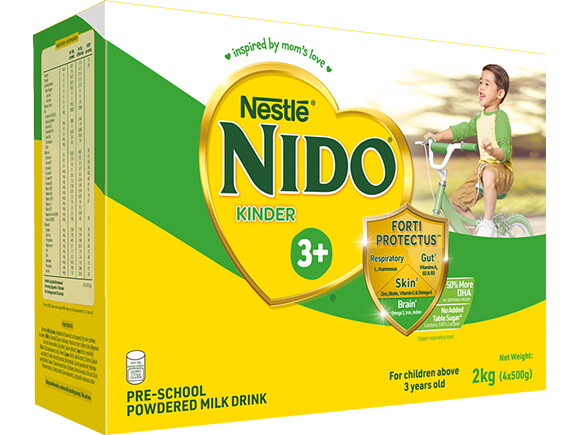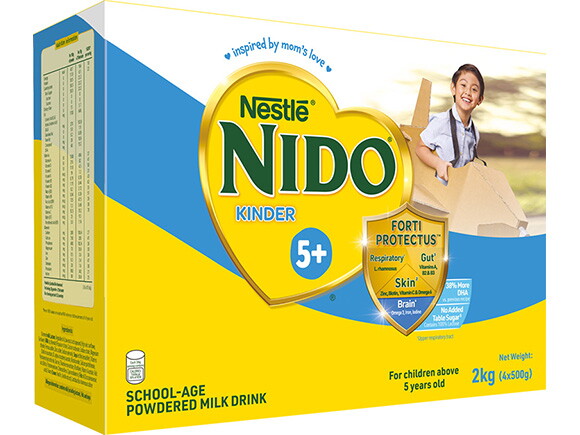Babies, toddlers, and preschoolers need more sleep than adults. Sleep plays a significant role in their overall health, growth, and development.
However, it’s not as simple as sending them to bed. Some moms follow or believe in many different "pamahiin" and practices, often because their own mothers or aunts or grandmothers swear by these beliefs.
The question is, are all of them true? We asked a certified sleep consultant to explain which practices parents should continue believing in and the ones everyone shouldn’t.
MYTH #1: Sleeping makes kids grow taller.
This is true. According to the National Center for Biotechnology Information in the USA, the body releases a growth hormone when a person is deeply asleep.
Maria Campos Lopez, a certified sleep consultant at Himbing Sleep Solutions adds, "When we lack sleep and become sleep-deprived, the release of this hormone may be suppressed. It is important to note that babies and toddlers have greater sleep needs than adults. For their overall health, growth, and development, they need to sleep 10-12 hours overnight."
MYTH #2: Children should take long, uninterrupted naps in the afternoon.
Instead of letting toddlers and preschoolers nap for hours in the afternoon, moms need to pay attention to the time they start sleeping and the duration of their rest.
"You need to wake up your toddler from afternoon naps, which may have started late or have gone [on for] too long," Lopez says. "They will have difficulty going to bed early and will likely interrupt [their] night sleep [pattern]."
As a general rule, napping should start no later than 3:30 p.m. Exceptions to this include: (1) if your child doesn’t have any problems falling asleep at night or sleeping through the night despite taking long naps, and (2) if your kid is sick since he or she needs more sleep to recover.
MYTH #3: Napping isn’t required for toddlers.
This is not true. In fact, a study found that children who take naps are happier, do better in school, and have fewer behavioral problems.
Lopez adds, "For toddlers, I would continue to include naptime in their regular daily schedule. Have a quick pre-nap routine and set the environment for a nap. If the child takes a nap, that’s great. But if not, he can do calm activities in bed, like reading, to allow his body to still get some rest."
MYTH #4: Sleep training should only be done when children are babies.
Lopez says it’s not too late to sleep-train your toddler or preschooler or to allow them to sleep independently without "pag-hele" or "tapik," or using a prop such as a pacifier or a milk bottle.
The techniques will be different when they’re older, but they have the same basic principles: setting up and following a consistent bedtime routine, and being patient as your children learn to sleep on their own. You may also refer to a sleep guide so you'll know what to expect from your child when it comes to sleep.
MYTH #5: Let kids play so they’ll get tired and quickly fall asleep.
"This is not true. An overtired child does not fall asleep easily," Lopez says. In fact, doing so only makes them more active past beyond their bedtime.
"When our kids play actively at night, or when we make them stay up past their bedtime, the body releases adrenaline making them more energetic, even if they are already tired. This leads to them having a hard time falling asleep. Just like adults, they need time to relax and unwind before sleeping," she explains.
One way of doing so is to lessen screen time, as there is a relationship between gadget use and poor sleep quality.
MYTH #6: Children should drink milk before going to bed.
Lopez says milk need not be given right before sleeping but "could be given at the start of the bedtime routine."
"This is also a great bonding time for parents and children where they get to talk about their day or while reading a bedtime story before lights out," she says.
Lastly, Lopez says, "A toddler needs many things to thrive: well-balanced meals, consistent routines, and a good night's sleep." They also need consistent sleep schedules and the right milk. Nutrition plays an important role in their growth, so it's important for moms to help them eat food that's good for them.
NIDO 3+ is formulated for the growth of toddlers and preschoolers ages 3 to 5. It contains nutrients for brain and digestion. It's the only growing-up milk that contains Lactobacillus Protectus with L. Rhamnosus, which is scientifically proven to help support your child's respiratory defenses. It also helps protect them against pathogens in the upper respiratory tract, which causes common coughs and colds, partnered with three balanced meals.












